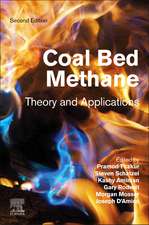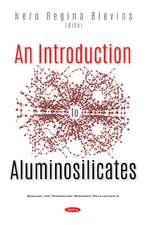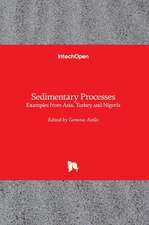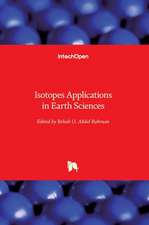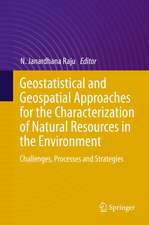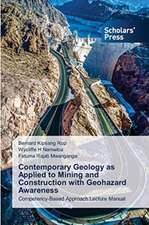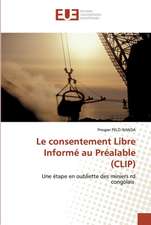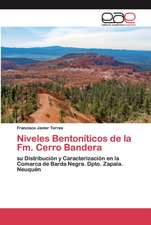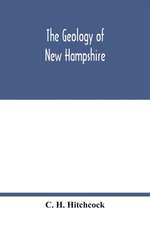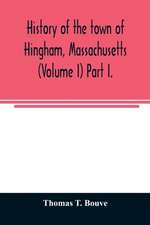Chemical Process Industries: Environmental and Health Risk Calculations
Autor Louis Theodore, R. Ryan Duponten Limba Engleză Paperback – 29 noi 2024
Chemical Process Industries: Environmental and Health Risk Calculations can be used as a college text designed to provide new engineers and scientists some comprehension of the industries into which they may enter. It also serves as a useful reference for practitioners and will help them better understand the health risk aspects of various industrial operations. The chemical process industries employ mechanical, electrical, and civil engineers and a host of other scientists; these professions should also benefit from material in this book that applies to their fields of work.
| Toate formatele și edițiile | Preț | Express |
|---|---|---|
| Paperback (1) | 356.64 lei 3-5 săpt. | +22.67 lei 7-13 zile |
| CRC Press – 29 noi 2024 | 356.64 lei 3-5 săpt. | +22.67 lei 7-13 zile |
| Hardback (1) | 524.78 lei 6-8 săpt. | |
| CRC Press – 30 dec 2022 | 524.78 lei 6-8 săpt. |
Preț: 356.64 lei
Nou
Puncte Express: 535
Preț estimativ în valută:
68.24€ • 74.36$ • 57.50£
68.24€ • 74.36$ • 57.50£
Carte disponibilă
Livrare economică 02-16 aprilie
Livrare express 19-25 martie pentru 32.66 lei
Preluare comenzi: 021 569.72.76
Specificații
ISBN-13: 9781032254883
ISBN-10: 1032254882
Pagini: 424
Ilustrații: 100
Dimensiuni: 156 x 234 x 28 mm
Greutate: 0.45 kg
Ediția:1
Editura: CRC Press
Colecția CRC Press
ISBN-10: 1032254882
Pagini: 424
Ilustrații: 100
Dimensiuni: 156 x 234 x 28 mm
Greutate: 0.45 kg
Ediția:1
Editura: CRC Press
Colecția CRC Press
Public țintă
Academic and Professional Practice & DevelopmentNotă biografică
Dr. Louis Theodore, over the past 50 years, was a successful educator at Manhattan College (holding the rank of full professor of chemical engineering), graduate program director, researcher, professional innovator, and communicator in the engineering field. During this period, he was primarily responsible for his program achieving a no. 2 ranking by US News & World Report. He has authored over 100 text/reference books and over 100 technical papers. He currently serves as a part-time consultant to the US EPA and runs Theodore Tutorials. He is a member of Phi Lambda Upsilon, Sigma Xi, Tau Beta Pi, American Chemical Society, American Society of Engineering Education, Royal Hellenic Society, and a fellow of the International Air & Waste Management Association. Dr. Theodore is the recipient of the AWMA’s prestigious Ripperton award that is “presented to an outstanding educator, who, through example, dedication, and innovation has so inspired students to achieve excellence in their professional endeavors.” He was also the recipient of the ASEE’s AT&T Foundation award for “excellence in the instruction of engineering students.”
Dr. R. Ryan Dupont has near 40 years of experience teaching and conducting applied and basic research in environmental engineering at the Utah Water Research Laboratory at Utah State University. His main research areas have addressed soil and groundwater bioremediation, stormwater management via green infrastructure, field remediation technology demonstration and treatment system performance verification, and water reuse technology performance and risks. He received a BS degree in Civil Engineering, and MS and PhD degrees in Environmental Health Engineering from the University of Kansas, Lawrence. Dr. Dupont has been a Full Professor of Civil and Environmental Engineering at USU since 1995, served as the Head of the Environmental Engineering Division for 10 years, was instrumental in establishing an Undergraduate Degree in Environmental Engineering at USU, and has been responsible for attracting more than $7 million in extramural funding through the Water Research Lab since joining the faculty in 1982. Dr. Dupont is a member of Sigma Xi, Tau Beta Pi, Chi Epsilon, the American Society of Civil Engineers, the American Society of Engineering Educators, the Water Environment Federation, the Solid Waste Association of North America, Engineers without Borders, and the Air and Waste Management Association. Dr. Dupont was recognized as an Outstanding Young Engineering Educator by the American Society of Engineering Education, and was a 2015 recipient of the Richard I. Stessel Waste Management Award, for "distinguished achievement as an educator in the field of waste management" from the Air and Waste Management Association.
Dr. R. Ryan Dupont has near 40 years of experience teaching and conducting applied and basic research in environmental engineering at the Utah Water Research Laboratory at Utah State University. His main research areas have addressed soil and groundwater bioremediation, stormwater management via green infrastructure, field remediation technology demonstration and treatment system performance verification, and water reuse technology performance and risks. He received a BS degree in Civil Engineering, and MS and PhD degrees in Environmental Health Engineering from the University of Kansas, Lawrence. Dr. Dupont has been a Full Professor of Civil and Environmental Engineering at USU since 1995, served as the Head of the Environmental Engineering Division for 10 years, was instrumental in establishing an Undergraduate Degree in Environmental Engineering at USU, and has been responsible for attracting more than $7 million in extramural funding through the Water Research Lab since joining the faculty in 1982. Dr. Dupont is a member of Sigma Xi, Tau Beta Pi, Chi Epsilon, the American Society of Civil Engineers, the American Society of Engineering Educators, the Water Environment Federation, the Solid Waste Association of North America, Engineers without Borders, and the Air and Waste Management Association. Dr. Dupont was recognized as an Outstanding Young Engineering Educator by the American Society of Engineering Education, and was a 2015 recipient of the Richard I. Stessel Waste Management Award, for "distinguished achievement as an educator in the field of waste management" from the Air and Waste Management Association.
Cuprins
Part 1: Introduction to Environmental and Health Risk 1. Definitions/Glossary of Environmental and Health Risk Terms. 2. Introduction to Environmental and Health Risk. 3. Environmental and Health Risk Analysis. 4. Introduction to Probability and Statistics. 5. Probability Distributions. Part 2: Chemical Process Industires 6. Definitions/Glossary of Chemical ProcessTerms. 7. History. 8. Chemical Process Equipment. 9. Chemical Processes: Fundamentals and Principles. 10. Industry-Specific Processes. 11. Emergency Planning and Response. Part 3: Health Risk Calculations for Specific Chemical Process Industries 12. Inorganic Chemicals. 13. Organic Chemicals. 14. Petroleum Refining. 15. Energy and Power. 16. Pharmaceuticals. 17. Food Products Industry. 18. Nanotechnology. 19. Military and Terrorism. 20. Weather and Climate. 21. Architecture and Urban Planning. 22. Environmental Considerations.
Descriere
This book can be used as a college text designed to provide new engineers and scientists some comprehension of the industries into which they may enter. It also serves as a useful reference for practitioners which will help them better understand the health risk aspects of various industrial operations.


